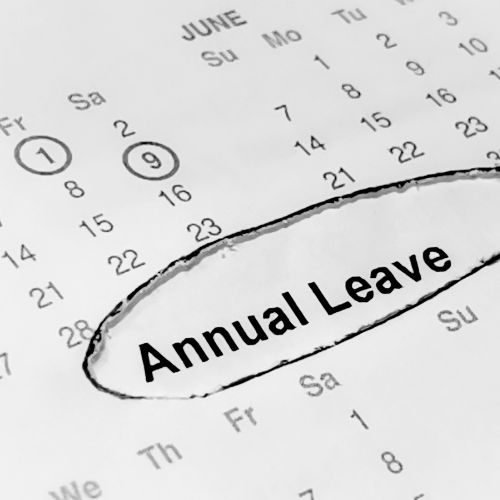With over 200,000 employees placed on ‘furlough’ in Northern Ireland as a result of covid-19 disruption and the availability of the Government’s CJRS furlough scheme until the end of October, managing an orderly usage of annual leave presents a unique challenge for employers this year. Government guidance has helpfully confirmed the following:
- Workers on furlough can take holiday without disrupting their furlough
- Employers should do everything reasonably practicable to ensure that the worker is able to take as much of their leave as possible in the year to which it relates
- Workers who are on furlough are unlikely to need to carry forward statutory annual leave, as they will be able to take it during the furlough period
Employers can require workers to take holiday at a particular time or potentially cancel a worker’s holiday, if they give enough notice to the worker. The required notice periods in relation to a worker’s leave entitlement under the Working Time Regulations are as follows:
- double the length of the holiday if the employer wishes to require a worker to take holiday on particular days
- the length of the planned holiday if the employer wishes to cancel a worker’s holiday or require the worker not to take holiday on particular dates
Employers can ask workers to take or cancel holiday with less notice but need the workers’ agreement to do so.
The Working Time (Coronavirus) (Amendment) Regulations (Northern Ireland) 2020 provide that where in any leave year it was not reasonably practicable for a worker to take some or all of their 4 week leave entitlement (under the Working Time Directive) as a result of the effects of coronavirus, the worker shall be entitled to carry forward such leave and take it in the two leave years immediately following the leave year in respect of which it was due.
Best practice is to allow a worker to take holiday from the leave entitlement that expires first ie workers should be allowed to take the holiday to which they are entitled in the new leave year before they take the ‘carried’ holiday under the Regulations, as the ‘carried holiday’ entitlement lasts for 2 years. However, ‘carried holiday’ is subject to further protection in that the employer must have good reason to refuse to allow a worker to take “carried holiday” on particular dates.
In Northern Ireland, the carry over provisions will have to be interpreted and applied in line with the ruling of the Northern Ireland Court of Appeal in Chief Constable of the PSNI and another v Agnew and others [2019] NICA 32 that a worker’s 4 week leave entitlement under the Working Time Directive is not used up first in a leave year and forms part of a “composite whole”. Although subject to appeal, this is a deviation from the position in GB where the Employment Appeal Tribunal in Bear Scotland Ltd v Fulton and another UKEATS/0047/13 ruled that it is for employers to choose which type of leave is taken when (ie Directive leave first, then the additional leave entitlement under the Working Time Regulation and then any additional contractual leave entitlement). Employers in Northern Ireland will therefore need to calculate on a fractional basis, what proportion of a worker’s outstanding annual leave entitlement actually relates to their leave entitlement under the Directive when confirming the number of days to be carried to carried over into the following years.
Good practice recognises the need to balance the importance of allowing workers to have flexibility in relation to when they might wish to take their annual leave at a time that suits them and their families against the need to avoid a build-up of leave necessitating carry over. Active management and workforce planning is required if employers wish to avoid unnecessary or unintended levels of carryover into next year and the year after. Engagement and consultation with individual staff is key to planning an appropriate and proportionate usage through the leave year.
Louise McAloon is a Partner and the Head of the Employment Department in Worthingtons Solicitors, Belfast and can be contacted by e-mail on [email protected].


